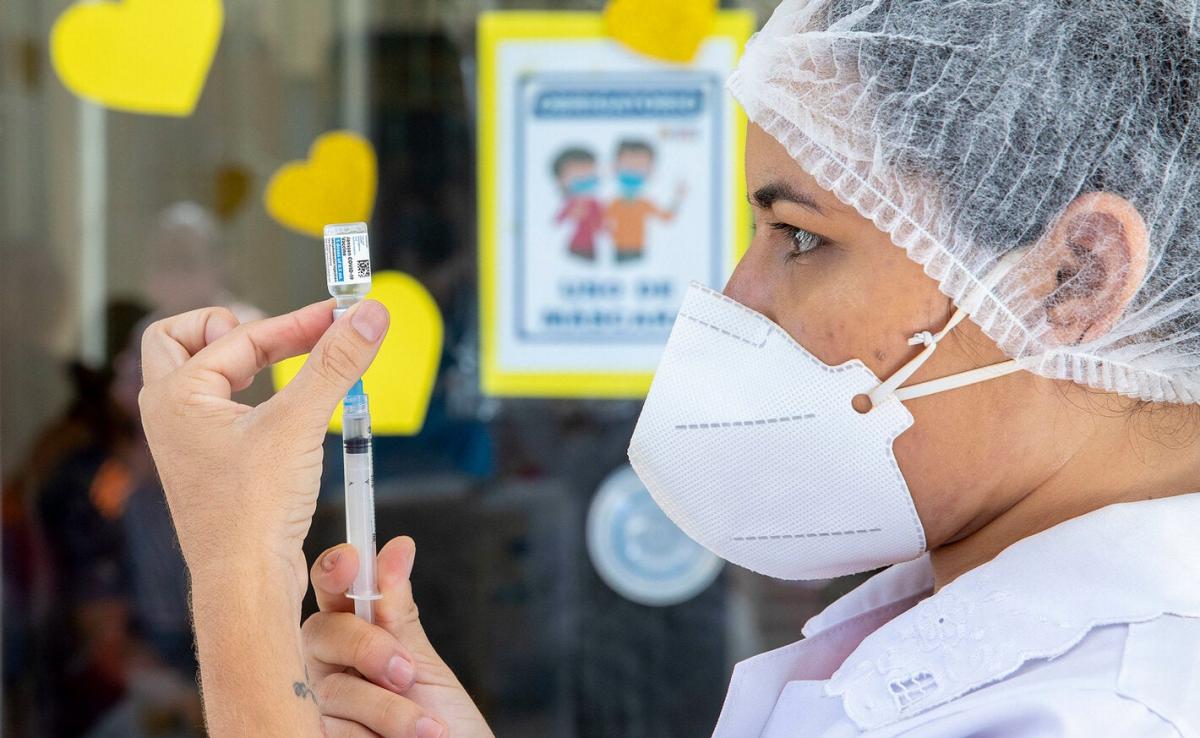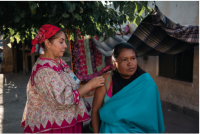PAHO urges public health measures and vaccination in light of Omicron variant PAHO urges public health measures and vaccination in light of Omicron variant

While experts work to better understand the new WHO-designated “variant of concern,” Omicron, the Pan American Health Organization (PAHO) Director Carissa F. Etienne, called for increased vaccination and public health measures to ensure the best possible protection against the virus.
Urging against panic, the PAHO Director highlighted that there are still many unknowns and studies will take some time to complete. Until then, “it is not clear whether Omicron is more transmissible than other variants, or if it causes more severe disease,” she said in a media briefing today.
In the Americas, which reported 753,000 new COVID infections and over 13,000 deaths over the past week, Omicron has so far been detected in Canada and Brazil. “But it is likely that other countries will begin seeing this new variant in circulation soon,” the Director said.
While PAHO continues to track all variants in the region, for now Delta remains the predominant variant in the Americas.
Dr. Etienne highlighted that with just over half of people in Latin America and the Caribbean fully vaccinated against COVID-19, “our region remains especially vulnerable.”
"Vaccine inequity is prolonging the COVID crisis, and this is exactly what we’re seeing with the arrival of Omicron,” Dr. Etienne said.
Calling on governments to sustain public health measures, such as mask wearing, and redouble their surveillance efforts, “the more COVID-19 circulates, the more opportunities the virus has to mutate and change,” she added.
Turning to the commemoration of World AIDS Day, which takes place each year on the 1st December, “COVID is not the first infectious disease that has shaken the world,” the PAHO Director said.
Prior to the pandemic, just 65% of people living with HIV in the region were receiving ARV therapy and as the pandemic progressed, interruptions increased four-fold, leaving millions at risk.
As there are effective drugs that control the disease and interrupt transmission, “we must ensure consistent and equitable access to these powerful tools.” The Director noted that 2.4 million people in Latin America and the Caribbean live with HIV.
With PAHO reaching its 119th anniversary this week, Dr Etienne highlighted the progress that has been made in public health in the Americas – in the treatment of HIV/AIDS and in the development of effective vaccines against COVID.
“We must work together to finish the job,” she said. So that “everyone in our region has access to the services and tools they need to live healthy and productive lives.”
Over the past week, COVID-19 cases have remained steady but high in the US and Canada and have dropped in Mexico. Reductions have also been seen in most countries in Central America.
Meanwhile, cases have increased steadily in Southern Cone countries and have accelerated in the Caribbean, the Cayman Islands, and in Anguilla.



